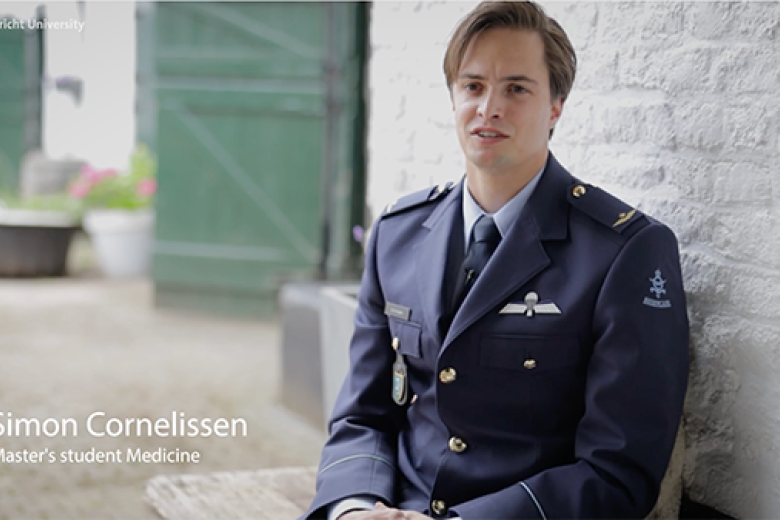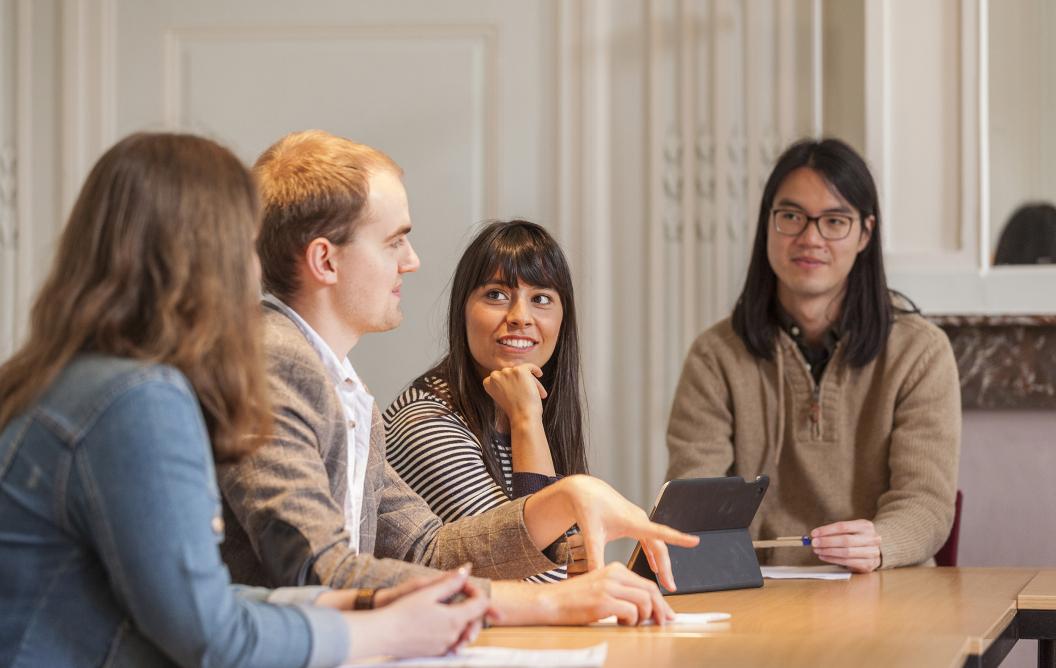Feeling 'different'
It is estimated that 10-15% of all university students are what is referred to as gifted. This does not necessarily mean you have an IQ of 150 and like solving maths puzzles in your free time - feeling different than your fellow students can also be a characteristic, explains Anke Smeenk, study advisor at the Faculty of Health, Medicine and Life Sciences. With the project 'About not being an Einstein', made possible by a grant from the Diversity & Inclusivity Office, she wants to ensure that being gifted is more widely recognised at Maastricht University.
It all started when Anke Smeenk, as a study advisor, was approached by a gifted student who didn't know how to study. ‘She had gone through primary and secondary school easily, but once she got to university she struggled. To be able to advise her properly, I went looking for existing expertise. To my surprise, I did not find any within the university, and the information on the internet was mainly focused on primary and secondary education. Shortly afterwards, I read about the Diversity & Inclusivity grants. This is how the idea arose to start a project at UM about giftedness’.
Beyond the shame
The aim of the project is threefold. Smeenk: 'First of all, it offers accessible activities for students, gifted or not, where they can exchange experiences and gain insights in peer-to-peer groups. In addition, the project should provide more expertise within UM [Smeenk is attending the Radboud International Training on High Ability for this purpose]. Finally, we want to create more awareness about being gifted, so both students and staff members will recognise it better and deal with it differently’.
In this way, Smeenk hopes the university will become more inclusive. ‘If as a result of this project, just one student realises they have these symptoms, too, and then feels better understood, I will be satisfied’.
Old-fashioned ideas
There is still a lot of negativity and shame surrounding giftedness, mainly due to prejudice and old-fashioned ideas, Smeenk discovered. ‘People frequently think the gifted are automatically weird, nerdy or not social, and that they face all kinds of problems. That’s why gifted people often prefer to keep it to themselves. While many people who are actually gifted, do not even notice it in their daily lives, or only find out later in life’.
- text continues below the photo -
A universal definition of giftedness does not exist yet. ‘In the past, being highly intelligent was the main criterion. More modern cognitive frameworks, however, also focus on things like high levels of creativity and motivation. In addition, more and more scientists, such as expert Tessa Kieboom, are convinced that the gifted possess certain corresponding character traits, such as a great sense of justice, high sensitivity, a critical attitude and perfectionism’ (see the grey box).
The world through a magnifying glass
Almost every student recognises one or more of these elements, so where is the difference between the gifted and the non-gifted? Smeenk: ‘Many people who are gifted experience a combination of elements, but the difference lies mainly in how they experience the world - as if through a magnifying glass. They often see things that others haven’t noticed yet. However, we shouldn’t think too much in terms of pigeonholes. After all, there is no such thing as the gifted student; everyone has their own background, signals and solutions. That is why this project fits so well with the Diversity & Inclusivity Office’.
A nice gift
If after reading this article you think you might be gifted, or you just want to know more about the subject, then you are very welcome to join one of the peer-to-peer groups (see grey box). Smeenk looks back on a successful first meeting in January. ‘It was a fun session. You really noticed that people recognised themselves in particular situations and felt connected’.
How do you recognise giftedness?
Possible characteristics are:
- Feeling different
- Motivation problems
- Procrastination behaviour
- Perfectionism, very high standards
- Problems with studying
- Many discussions and confrontations
- High sensitivity
- Low self-esteem
- High self-reflection
- Strong sense of justice
- Fear of failure
- Anxious or depressive thoughts
- First seeing the bigger picture, then the details (instead of the other way round)
- High intelligence (although you do not have to be an 'Einstein')
That success left her with a taste for more. Smeenk is currently working with EDLAB on new workshops for employees aimed at student guidance. In the future, she hopes to further spread the word within UM, for example, through lectures, workshops and other activities. ‘Let's make sure that being gifted actually is a gift for everyone’.
Instagram: @giftnedness_UM
bu-giftedness@maastrichtuniversity.nl
From 5-13 March 2022 it is the ‘Week of the Gifted’ in the Netherlands. For more information (in Dutch), please visit www.weekvandehoogbegaafdheid.nl.
Peer-to-peer groups
During each peer-to-peer group there is a different theme which is discussed informally and accessibly through propositions, questions and dialogue. On 7 March 2022, from 15.30-17.00, the theme will be 'I don't feel gifted: everyone can do this, right?’. There will also be sessions on 5 April, 10 May and 14 June. Everyone is welcome, whether you feel gifted or not. For more information and registration, click here.
Johannes, master student of Psychology, specialisation Health and Social Psychology, participated in the first peer-to-peer group of the 'Einstein' project. What are his experiences?
‘I do not consider myself to be gifted or highly sensitive, but when I saw the invitation to the group in my mailbox, I was curious. I wanted to know more about the subject, because I recognise a lot of symptoms in people around me, and I would like to be able to help them. I also want to stimulate these kinds of sessions, because it is good that there is more awareness of giftedness at UM’.
‘The session took place in a small group of about ten participants. The atmosphere was good; everyone felt safe enough to exchange experiences. It was also very interesting for people like me, who do not immediately consider themselves highly gifted. I noticed that many of the things that were discussed are things almost everyone runs into, whether you feel gifted or not. In summary, I would recommend the session to anyone who is interested in gaining a better understanding of human behaviour: in themselves and in others’.

The D&I grants
The grants of the Diversity & Inclusivity Office stimulate innovative bottom-up initiatives in the field of diversity, inclusion and equality. For more information, click here.
Also read
-
Medical student is 'flying high' at the Defensity College
Simon Cornelissen isn't only attending the master's programme in Medicine. In addition to his busy curriculum, he is also an ensign with the Dutch Ministry of Defence and a working student at the Defensity College. Watch the video.
